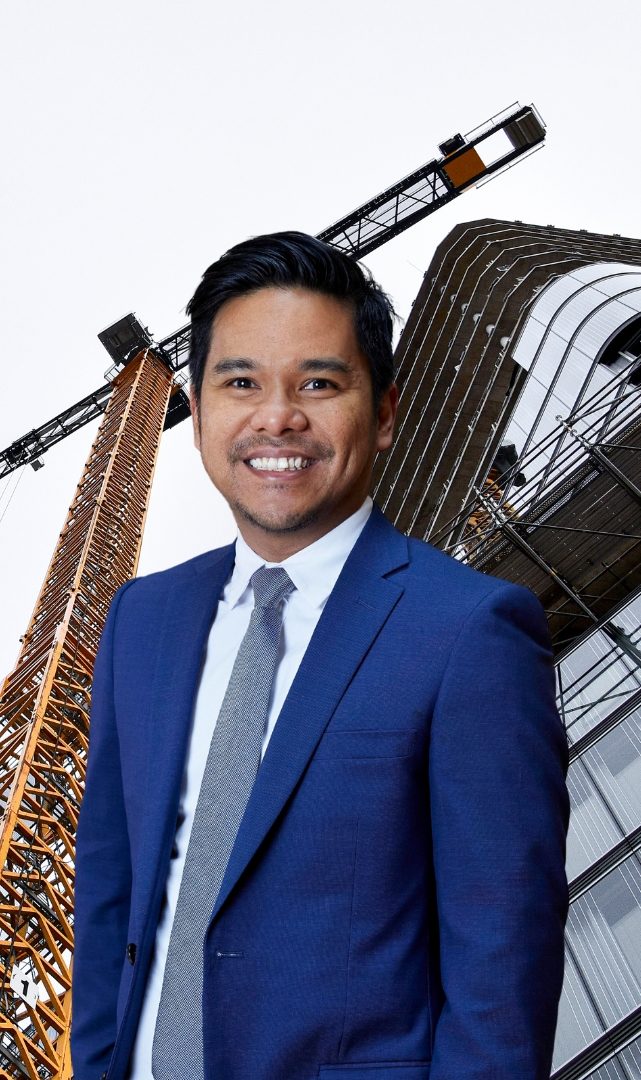19 August 2025
In conversation with Sufian Sulaiman
We sat down with Sufian Sulaiman, Director | Quantity Surveyor at Charter Keck Cramer, to get his insights on the cost pressures shaping Melbourne’s construction sector, the evolving nature of project delivery and the trends that will define future-ready developments.
1. What are some of the biggest cost pressures you're seeing in construction projects across Melbourne right now, and how are clients navigating these challenges?
The biggest cost pressures are coming from trade shortages, rising labour and preliminaries, and the ongoing risk of contractor insolvencies. While material prices have eased from pandemic highs, quarterly increases are still evident, and new National Construction Code requirements are adding further design and compliance costs. Contractors are tendering more cautiously, often including higher risk allowances.
Clients are responding by engaging the market earlier, through early contractor involvement or two-stage tenders, to identify buildability issues upfront and reduce pricing uncertainty. They are also exploring non-traditional financing models that support contractor cashflow, while adopting smarter contract structures, realistic programming and proactive value management to keep projects on track.
Quantity Surveyors play a critical role, providing benchmarking against live tender data, stress-testing budgets for compliance and substitutions, leading value management initiatives, advising on escalation and contingencies and guiding contract strategies such as contract payment terms, etc. A Quantity Surveyors’ input gives clients clarity and confidence to make informed decisions in what is a very complex market.
2. From your perspective, how has project delivery evolved in recent years, and what are some of the common risks or inefficiencies that can derail a project if not managed well?
In recent years, project delivery in Melbourne has evolved significantly under market pressures. While traditional lump-sum procurement remains common, there is a growing shift toward early contractor involvement, two-stage tenders and collaborative contracting, which help address buildability, align design with tight budgets and share risk amid cost escalation, supply chain issues and contractor insolvencies. There is also more emphasis on realistic programming, digital tools, modular or prefabricated solutions and structured value management to improve efficiency and certainty.
Common risks and inefficiencies include:
Inadequate cost planning: Failing to engage Quantity Surveyors early can lead to designs exceeding budgets, causing late-stage redesigns or scope cuts.
Ineffective procurement strategies: Failing to secure key trades or materials early leaves projects vulnerable to price increases and delays. Additionally, poor cashflow management can hinder progress by preventing the timely engagement of critical trades.
Overly optimistic programmes: Compressing timelines without factoring in design development, regulatory requirements or supply chain realities often causes delays and cost overruns.
Contractor and subcontractor fragility: With insolvencies still elevated, not conducting proper financial due diligence can expose projects to major disruptions.
Poor contracting payment terms: Contract payment terms misaligned with client funding, which can disrupt cashflow and delay progress.
3. You've worked across a diverse range of sectors, from aged care and healthcare to commercial and master planned communities. Are there any common trends or cost considerations that cut across these sectors right now?
Across all sectors we are seeing similar pressures such as labour shortages, material costs that continue to increase and more stringent regulatory requirements like sustainability and energy efficiency standards. These factors are impacting budgets no matter the asset type. In response, clients are focusing on value management early, engaging Quantity Surveyors from the outset to stress-test costs, and using procurement strategies such as two-stage tenders or early contractor involvement to de-risk pricing. Flexibility on specifications, realistic programming and keeping a close eye on contractor solvency are also common priorities across the board.
4. With ongoing conversations around red tape and delays in planning and approvals, how is that impacting construction timelines and what should stakeholders be aware of early in a project?
Delays in planning and approvals can push projects back before construction even starts, affecting procurement, contractor availability and budgets. Stakeholders should plan realistically, engage regulators and consultants early and involve Quantity Surveyors to assess cost and contingency impacts. Building these factors into the programme upfront helps manage risk and keeps projects moving more smoothly.
5. Looking ahead, what do you think will define a well-managed, future-ready construction project and how can QSs help clients stay ahead of the curve?
A future-ready project achieves a balance between cost certainty, programme reliability and flexibility, while incorporating sustainability, digital technologies and modern construction approaches such as modular or prefabricated solutions. Quantity Surveyors assist clients in staying ahead by benchmarking costs, stress-testing budgets, guiding value management, advising on escalation and contingencies and developing contract strategies with a focus on risk management.
As Quantity Surveyors we also provide support for pre- and post-contract due diligence, including contractor evaluation, reviewing the adequacy of design documentation, verifying that appropriate performance security and insurance are incorporated into the building contract, providing guidance on budget sufficiency, aligning contract payment terms with available funding, reporting on approvals compliance and assisting with programme and cashflow forecasting. This enables clients to understand potential risks, make informed decisions to mitigate them and maintain project resilience in a rapidly changing market.
At Charter Keck Cramer, our Quantity Surveying team partners with clients to navigate complexity, manage risk and deliver certainty. If you’d like to learn more about how we can support your next project, please get in touch with Sufian Sulaiman today!



